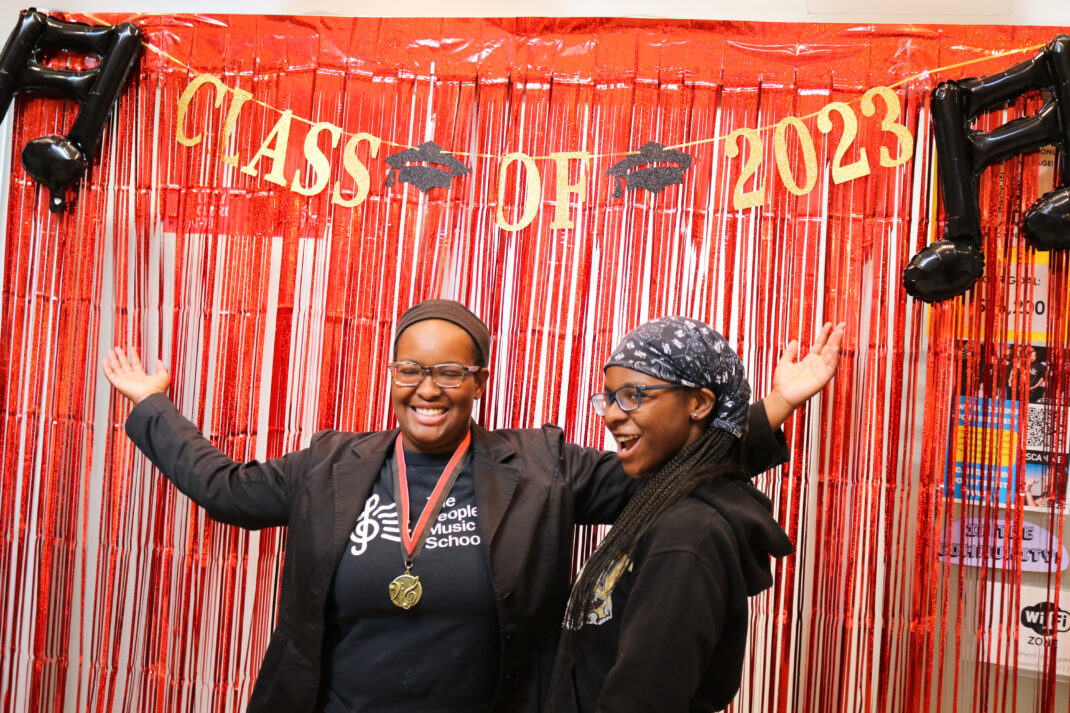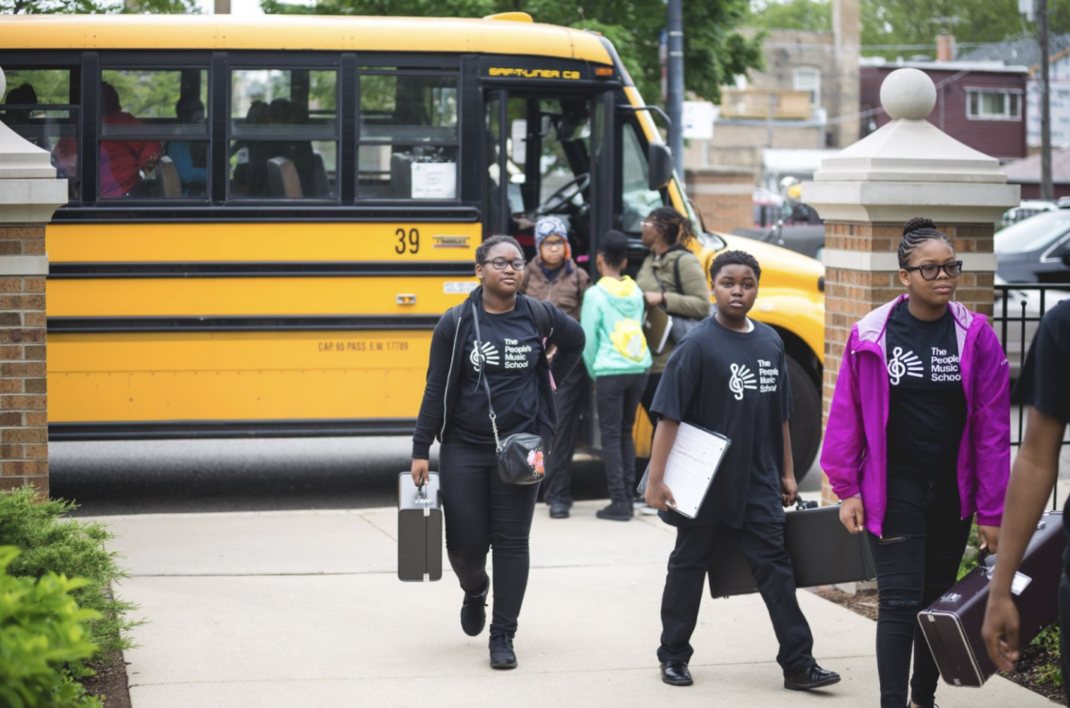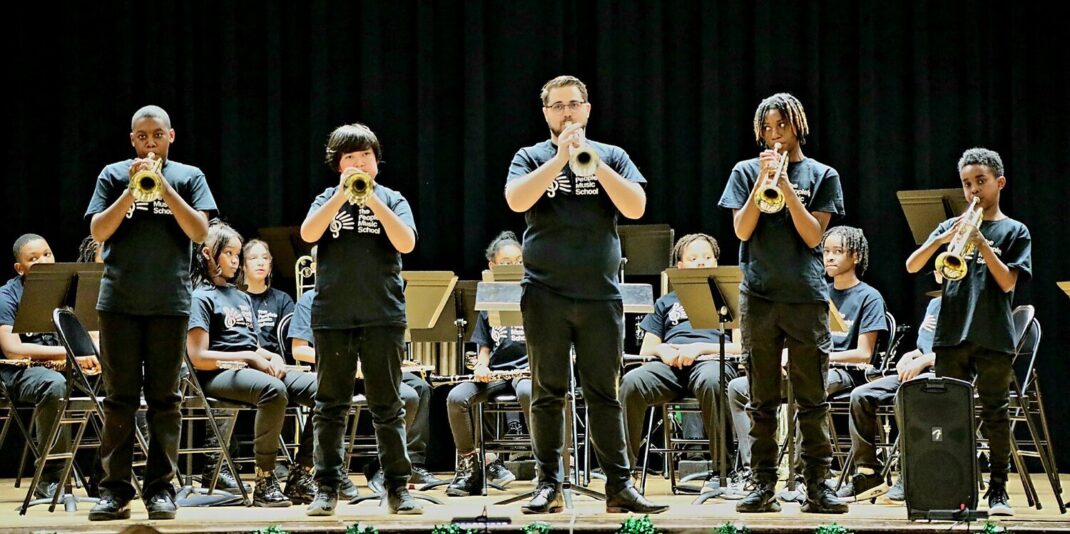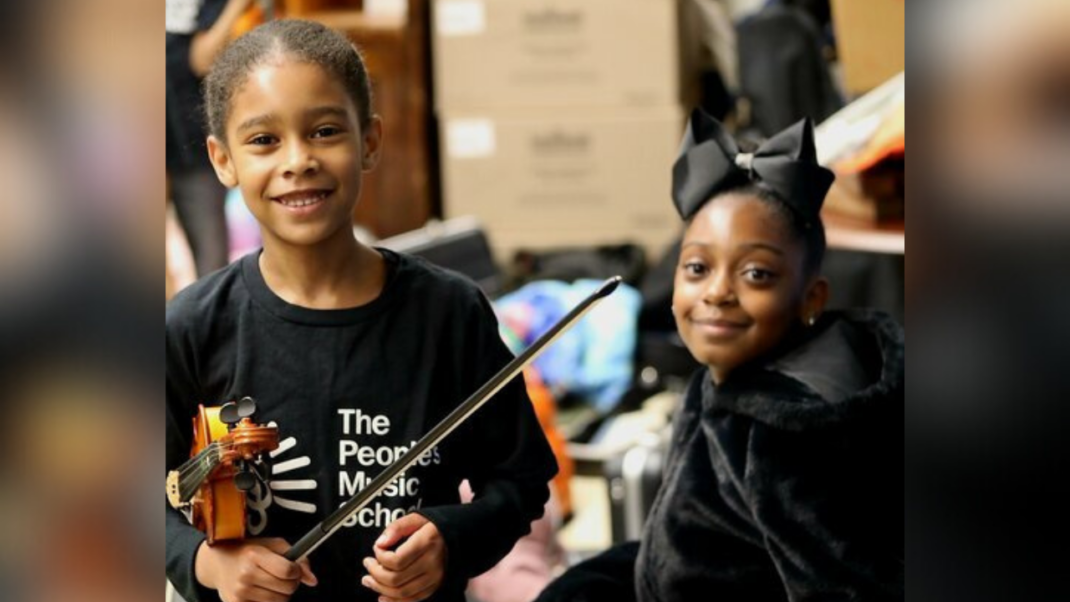This piece was originally published in People’s Music School’s 2022-2023 Year in Review. Read about the impact that high-quality music programming has on student retention and student success at TPMS.
The benefits of intensive music education are most pronounced in the context of a multi-year student journey. Our data shows that the longer students remain in our program, the deeper and more sustainable the impact, in particular given the learning disruption caused by the COVID-19 pandemic in our student community. We use internal data and external research to inform program design and interventions necessary to support students in persisting in our program as long as possible, setting ourselves apart from typical after-school programming.

People’s Music School Class of ‘23 students celebrate at their Senior Send-off party
Students that persist in our program through their senior year graduate high school and go on to attend college 100% of the time. However, even students that stay with us for two to three years see dramatic increases in growth mindset and grit. Our goal is to create the conditions that give every student that joins TPMS an opportunity to persist in a long-term journey of growth and progress in our program.
This past year, we invested time and analysis in better understanding the drivers of student persistence and attrition. We analyzed quantitative data and interviewed families about their needs, learning three powerful insights that transformed our programming decisions.
Physical access is crucial

Students at The People’s Music School’s Greater South Side location are bussed to programming
Students at our Greater South Side site who received guaranteed bussing to programming had a 10% higher in-year retention rate than those who did not. At our North Side sites, we found that the farther away a student lives from our site, the higher their likelihood of attrition. This insight has led us to deepen our investment in student transportation for our Greater South Side site, and for our other sites, to narrow the geographic radius of our targeted recruitment efforts, focusing on building cohorts of students from schools in close proximity to our community sites and strengthening our partnerships with local school principals.
Progression motivates

Greater South Side trumpet students and teaching artist Wes Woodward perform a trumpet fanfare to kick off the Winter Concert.
We both saw in our data and heard from families that when students don’t progress musically, their motivation flags, and they are more likely to drop. Students who have remained at the same instrumental level for two years are at significant risk of attrition, whereas students that regularly progress tend to persist.
Moments of truth matter

Violin students at our Greater South Side program smile after performing in the Winter Concert
Families reported that in their journey, specific moments in their program experience significantly impacted their ability to persist. Instrument matching matters: If a student matched with an instrument they were excited about, this impacted their excitement to stay. Also, when students are in moments of academic transition, for example moving from 5th to 6th grade or 8th to 9th, they are more likely to reassess their activities for the following year.
Learnings
These three insights enabled us to better prioritize our outreach efforts to families by proactively identifying students at high risk of attrition and intensifying our interventions in ways that motivated more students to persist. In this past year, we developed a dashboard analyzing these critical factors against all of our students, facilitating our Program Managers’ ability to identify and intervene for the students most at risk of dropping the program during the year.
In one example, we identified a 6th grade student that had multiple risk factors for leaving the program (6th grade, below average attendance, lack of progression). This student struggled to engage with our virtual programming during the COVID-19 closures, and these attendance and engagement challenges continued with the return to in-person programming. These challenges hindered his ability to progress musically and contribute to his ensemble. With this in mind, we initiated an in-person meeting with his family, and also designed a learning plan tailored to his needs, in particular focusing on incentives and rewards to keep this student engaged, motivated to progress, and connected to his community of peers. With these interventions, the student not only remained in the program for the year, but also grew into a leader within his ensemble.
Outcomes
This year, over 80% of the students who started last year with us re-enrolled this fall. We see this as not only a strong indicator of families’ and students’ interest in and dedication to our programming, but also a success of our own data-driven and community-centered efforts.

Thank you for all you do for our kids TPMS! They love music and are learning so much. Great teachers & staff at Uptown! Happy parent!